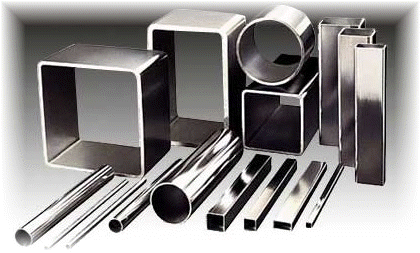|
|||||
|
|
 Chromoly (4130)
Chromoly (4130)Chromoly is an abbreviation for "chromium-molybdenum steel". It is not as lightweight as some steel alloys, but has the advantages of high tensile strength – 90-95 ksi [ksi = 1000 pounds per square inch] in the normalized condition – and malleability. It is also easily welded and is considerably stronger and more durable than standard (1020) steel tubing. Chromoly is often called "4130" because the carbon content is nominally 0.30%. With this relatively low carbon content the alloy is excellent from the standpoint of fusion welding . The alloy can be hardened by heat treatment or "normalizing". This is a process of taking 4130 tube up to a prescribed temperature and cooling it at a precise rate. This removes all strain created in the tube manufacturing process and allows the homogenization of the steel's grain structure. Here are the principal benefits you can expect from Chromoly tubing in mechanical applications:
|
||||








